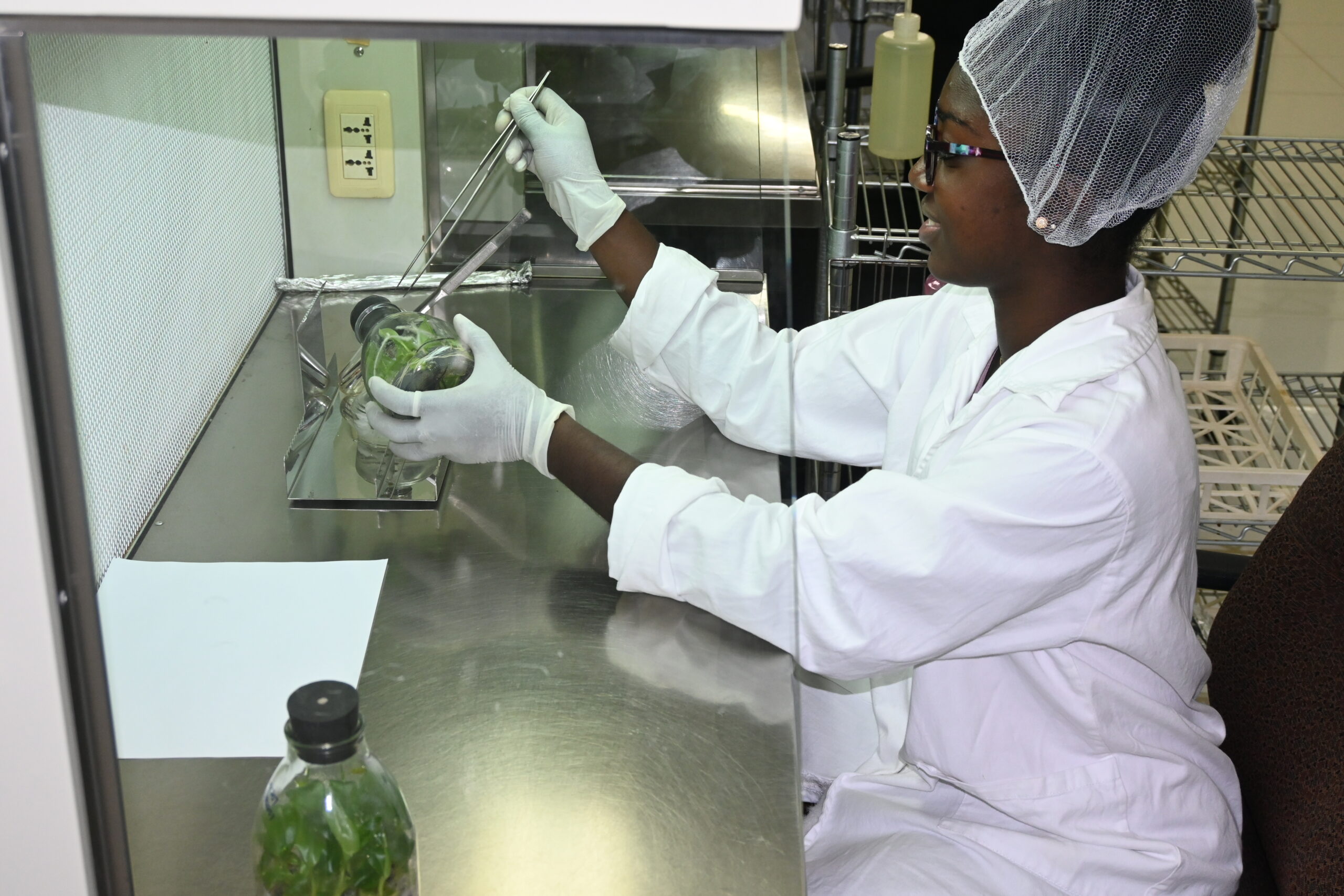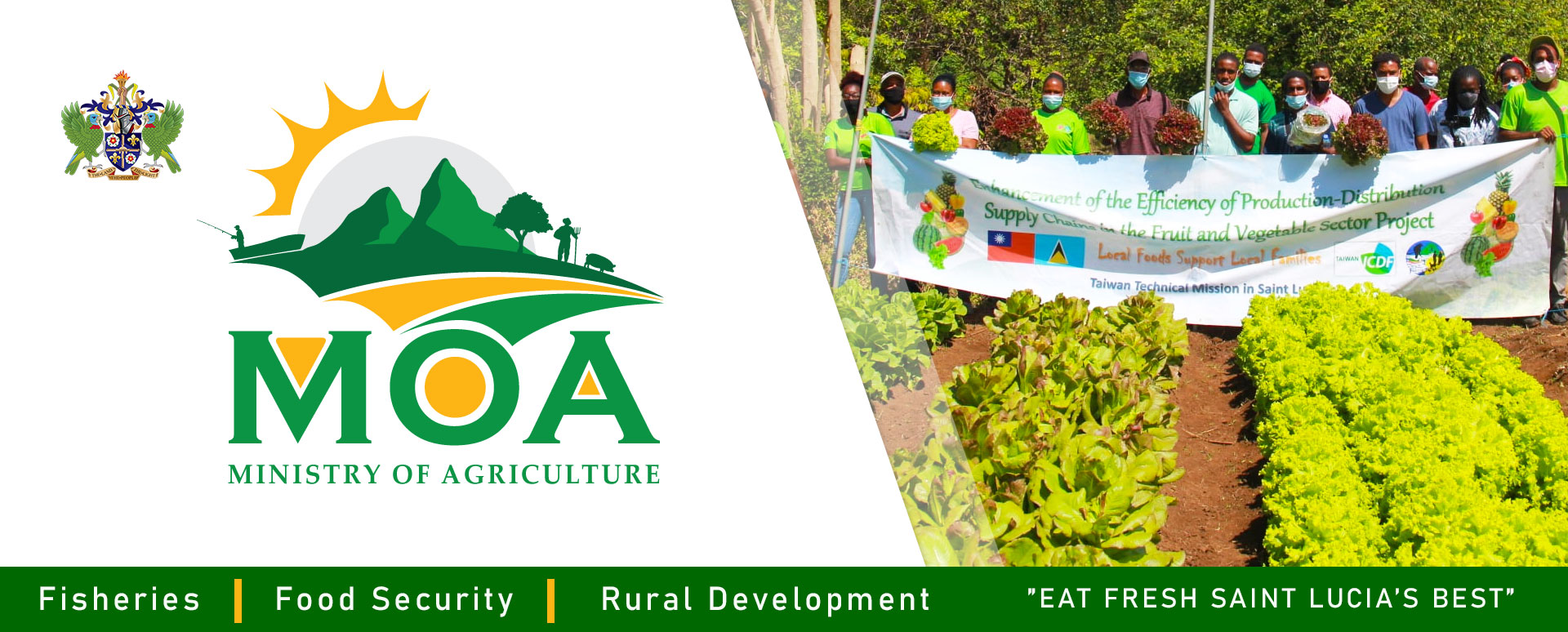TISSUE CULTURE
The Tissue Culture Laboratory of the Ministry of Agriculture, Lands, Agricultural and Forestry & Fisheries is located at the Union Agricultural Station and is a sub-unit of the propagation division. The need for producing plants via Tissue Culture in Saint Lucia is a consequence of the high demand for quality planting material and the urgency of diversifying the local agricultural products. In addition, the government over the past few years has spent heavily on the importation of tissue culture plantlets produced in Israel to revitalize the then ailing banana industry. It is against this background that the Government of the Republic of China (Taiwan) has generously financed the construction of a modern plant tissue culture laboratory on the grounds of the Union Agricultural Station. This new facility has the capacity to produce well over five hundred thousand (500,000) plantlets per year of various food, root, fruit crop species, ornamentals, and possibly forest species of economic and/or ecological importance.
Mr. Winsbert Pierre Louis
Officer in Charge - Horticulturist
OBJECTIVES
The objectives of the Tissue Culture Laboratory include the strengthening of the biotechnological capabilities of the ministry of agriculture in the areas of plant micropropagation, investigative research, identification and creation of genetically modified organisms, germplasm conservation, public education and sensitization in relevant areas, and student career preparation/ guidance in plant tissue culture and plant biotechnology.
VISION
To make available to the farming community and wider society quality food & ornamental planting material. Provision of analytical services and support to the biosafety unit in the field of risk assessment of genetically modified organisms (GMOs) and serve as a regional plant tissue culture center for training of regional experts.
DESCRIPTION
Plant Tissue Culture is a very broad and multifaceted field. It is a technological application that can be used by the curious gardener multiplying plants in a modest home kitchen to the renowned scientist working in an elaborate laboratory. It is used for the propagation of plants under germ-free conditions often to produce exact replicas of a plant. Tissue culture relies on the fact that many plant cells can produce a whole plant from single cells, plant cells without cell walls (protoplasts), pieces of leaves or roots, these can be used to generate a new plant on culture media given the required nutrients and plant hormones are present.
Tissue Culture produced plants present several advantages:
- The production of exact copies of plants that produce particularly good flowers, fruits, or have other desirable traits.
- To quickly produce mature plants.
- The production of multiples of plants in the absence of seeds or necessary pollinators to produce seeds.
- The regeneration of whole plants from plant cells that have been genetically modified.
- The production of plants in germ-free conditions allow them to be moved with greatly reduced chances of transmitting diseases, pests, and pathogens.
- The production of plants from seeds that otherwise have very low chances of germinating and growing, i.e. orchids etc.
- To clean particular plants of viral and other infections and to quickly multiply these plants as cleaned stock for agriculture and horticulture.

OUR TEAM





PROJECTS
- Banana Tolarance Project
- Citrus Greening Project
- Technologies developed Citrus
- Barrett-IICA mission report St Lucia-btrv (1)
- Conservation of Black Sigatoka tolerant Musa Spp
- Needed item for STG-Citrus Greening RRA
- New Banana Media
- TCP-Supporting the Control and Prevention of Citrus Greening in SLU
CONTACT US
- Winsbert Pierre Louis
- Phone: 486 6800
- Cell: 758-719 9117
- Email: wpierrelouis@gmail.com

